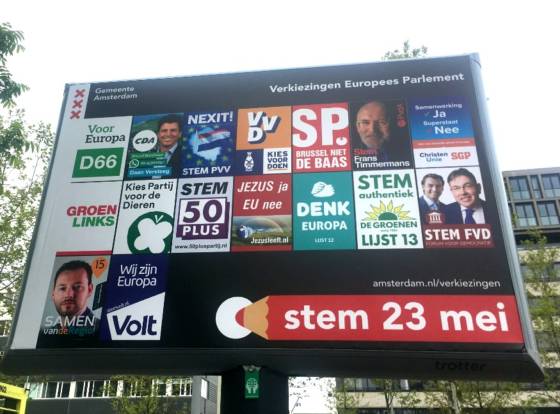Let EU citizens do more than vote for local councils, EU parliament says


The European parliament says the job of mayor or council executives should be open to EU citizens who live in another EU country, and that current restrictions in certain member states should be abolished.
In the Netherlands, this would mean that the position of wethouder – or city executive – would no longer be reserved for Dutch nationals only. All EU nationals can vote in the local elections and can be elected as councillors but are not allowed to hold public office.
Similar restrictions exist in Austria, Belgium, Cyprus, the Czech Republic, Estonia, France, Germany, Greece, Italy, Poland and Slovenia, according to a European Commission document.
The request was approved on Tuesday as part of a series of proposals to update the rules on participation in municipal and European elections for EU citizens who have moved to another country within the block.
EU citizens’ participation in local political life has so far been limited, mostly due to lack of awareness about their rights, scarce information about voting procedures, language problems and lack of familiarity with local politics. In 2021, the European Commission came up with some proposals to make participation easier.
The European parliament is now going further and calling for the removal of all restrictions that limit participation, including the option to reserve top local government positions for nationals and to restrict Europeans’ right to vote and stand in elections when they account for over 20% of the electorate.
Information in European languages
MEPs also want more efforts to encourage other EU nationals to vote. This would include registering voters as soon as they become residents and providing information on electoral rights and deadlines in an official EU language that they speak.
In addition, the parliament said postal, advance, proxy or electronic voting should be made available to all and member states should make it easier for vulnerable groups, including persons with disabilities and mental illnesses, to exercise their electoral rights.
In a separate report, the parliament adopted similar proposals for EU elections.
Voting
It is estimated that some 11 million EU citizens living in another EU member state are eligible to vote, but there is little data on how many of them actually do so.
In the Netherlands, just 12% of EU nationals registered to vote in the 2019 European elections and in the local elections in 2022, many cities made little or no effort to alert foreign residents to their rights.
Only Dutch nationals can vote in next month’s provincial council elections but almost everyone officially resident can vote in the water board elections which take place at the same time.
When it comes to rules on elections, it is the EU Council (formed by representatives of EU governments) that makes the final decision on the basis of unanimity, following the parliament’s recommendations.
The Commission and parliament aim to have the new rules in place by 2024, in time for the next European elections, but Boeselager warned that there is a ‘general under-prioritisation of reforming the EU and improving the EU among member states’.
Thank you for donating to DutchNews.nl.
We could not provide the Dutch News service, and keep it free of charge, without the generous support of our readers. Your donations allow us to report on issues you tell us matter, and provide you with a summary of the most important Dutch news each day.
Make a donation